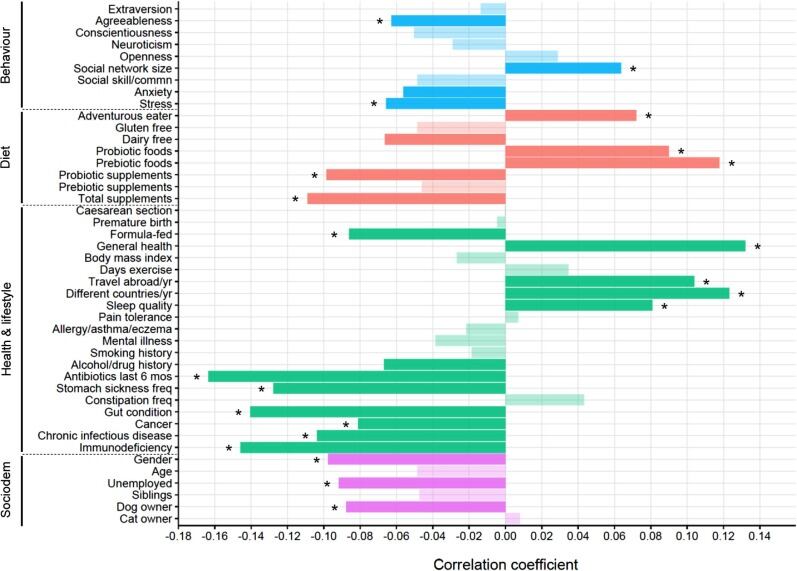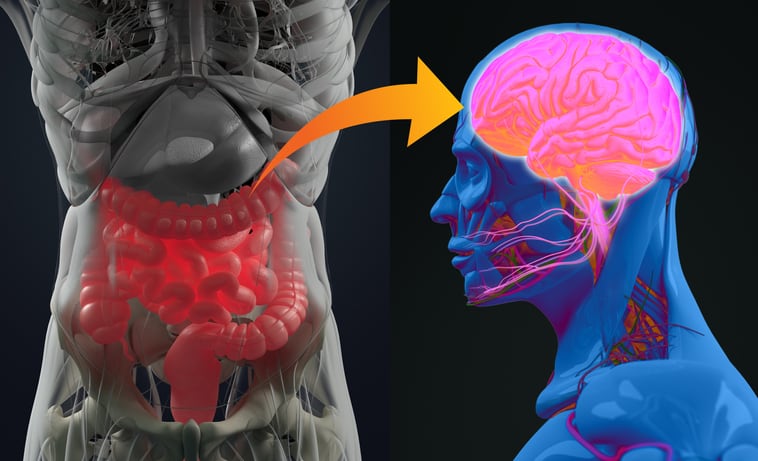An Oxford University study, published in Human Microbiome Journal, examined the composition and diversity of the human gut microbiome to determine if it is related to differences in personality.
The report notes that personality influences health and is approximately 50% heritable, suggesting that environmental factors also contribute significantly to our personality. “In addition to our external environment, the burgeoning field of the microbiome is revealing the many ways that our ‘environment within’ can affect our body’s physiology, including our digestion, immunity, metabolism, development and even our behaviour,” explained study author Dr. Katerina Johnson, University of Oxford, Department of Experimental Psychology.
Study details
Johnson studied fecal samples from 655 adults that were 42 years of age on average. Participants lived in 20 different countries and four continents, predominantly North America (83%). Participants from the United States accounted for 77% of the sample, while 11% of the study participants were from Europe.
Participants also filled out an online questionnaire that analyzed 44 study variables relating to behavioral traits, diet, health and lifestyle and sociodemographics.
Findings

The study found that overall, 25 of the 44 study variables were significantly related to gut microbiome diversity, finding that sociability is associated with higher diversity, and anxiety and stress with reduced diversity.
"This is the first study to find a link between sociability and microbiome diversity in humans and follows on from similar findings in primates which have shown that social interactions can promote gut microbiome diversity. This result suggests the same may also be true in human populations." Conversely, the study found that people with higher stress or anxiety had a lower microbiome diversity.
Although not related to personality, the Johnson also pointed out other interesting finds:
- Adults who were formula-fed as children had a less diverse microbiome in adulthood.
- Females were found to have a significantly lower gut microbiome diversity compared to males.
- Diversity was also positively related to international travel, suggesting that our interaction with the environment does play a considerable role in influencing our gut microbial community.
- More adventurous eaters also had a more diverse gut microbiome and those on a dairy-free diet had lower diversity.
- Additionally, diversity was greater in people with a diet high in natural food sources of probiotics and prebiotics.
- Dog ownership was linked to lower diversity, which contrasts the finding that infants living with household pets tend to have a more diverse gut microbiome.
Gut bacteria is linked to personality
Johnson concluded that differences in gut microbiome composition and diversity are shown to be linked to personality traits in the general population, adding that the results may inform the development of probiotic or prebiotic therapies to help improve mood and treat conditions such as autism, anxiety and depression.
“Discovering new and effective interventions for mental health conditions is of pressing concern, given the declines in psychological health of our modern society.”
“Finally, it is pertinent to reflect on the ways in which our modern-day living may provide a perfect storm for dysbiosis of the gut. We lead stressful lives with fewer social interactions and less time spent with nature, our diets are typically deficient in fibre, we inhabit oversanitized environments and are dependent on antibiotic treatments. All these factors can influence the gut microbiome and so may be affecting our behaviour and psychological well-being in currently unknown ways."
Probiota Americas
The leading annual event for the prebiotic, probiotic and microbiota focused food and pharma industries.
As part of the Probiota Series, the event will bring together professionals from across the globe to network, connect and engage whilst learning about the hottest topics in the industry.
Join us as we connect the business and science of the microbiome May 27 – 29, 2020.
Source: Human Microbiome Journal
Volume 15, March 2020, 100069 https://doi.org/10.1016/j.humic.2019.100069
“Gut microbiome composition and diversity are related to human personality traits”
Author: Katerina Johnson




